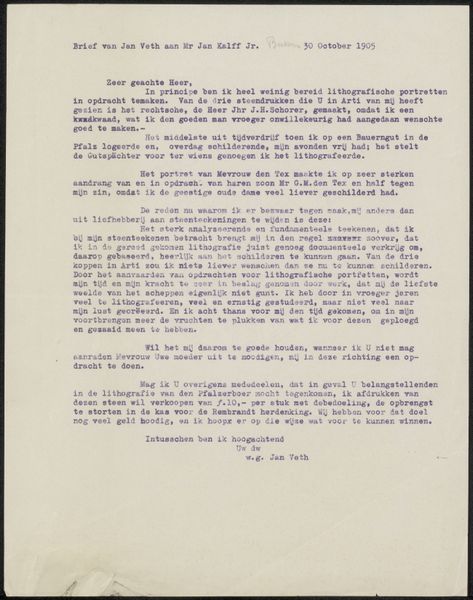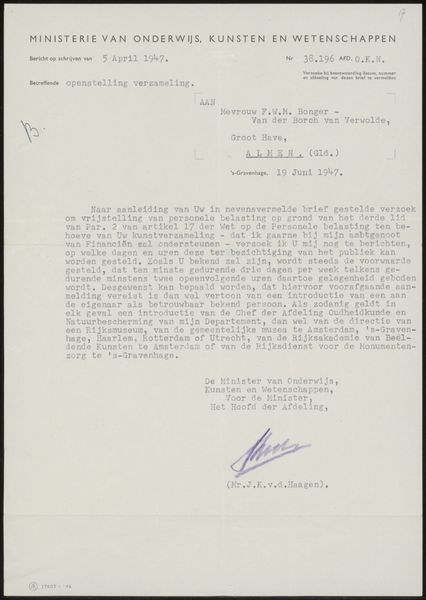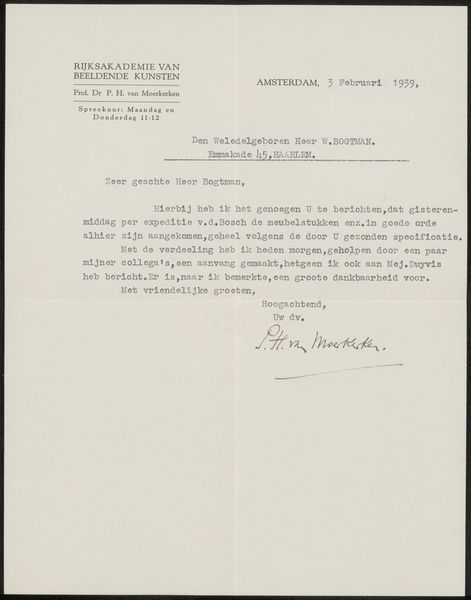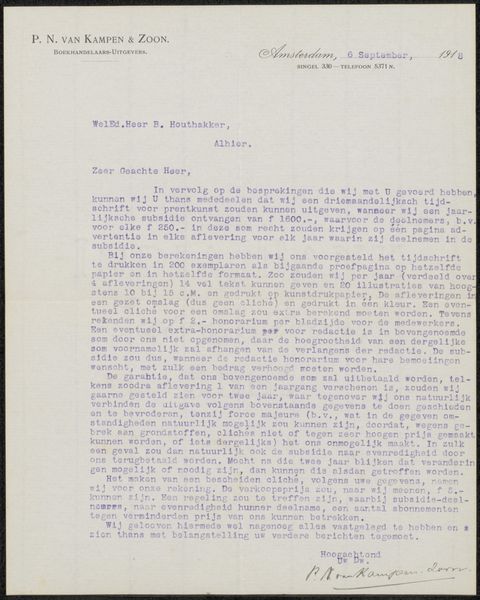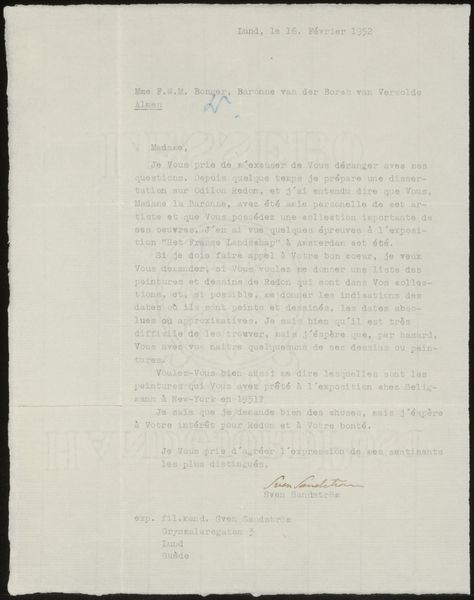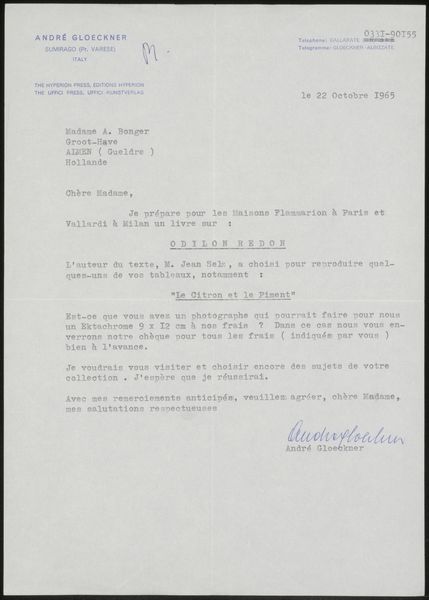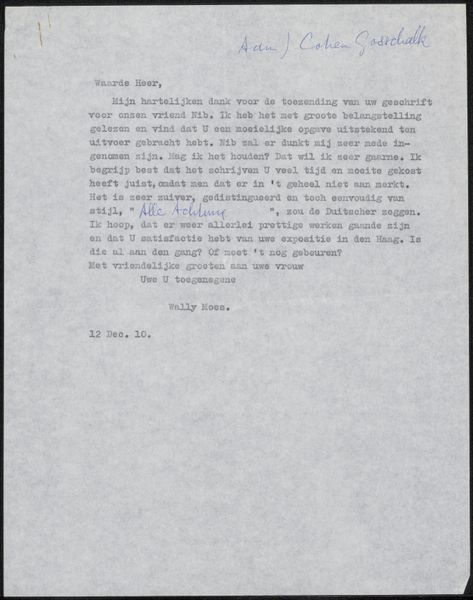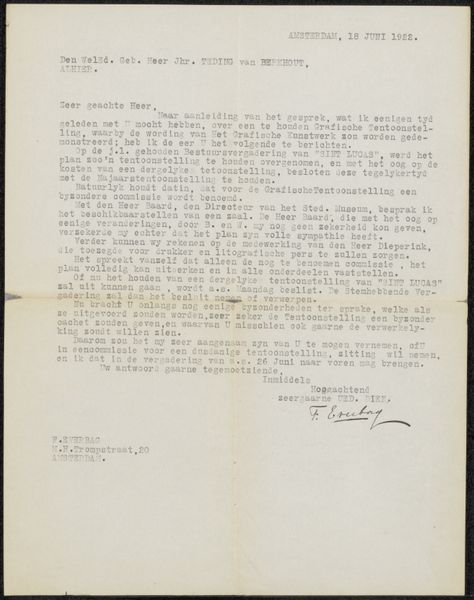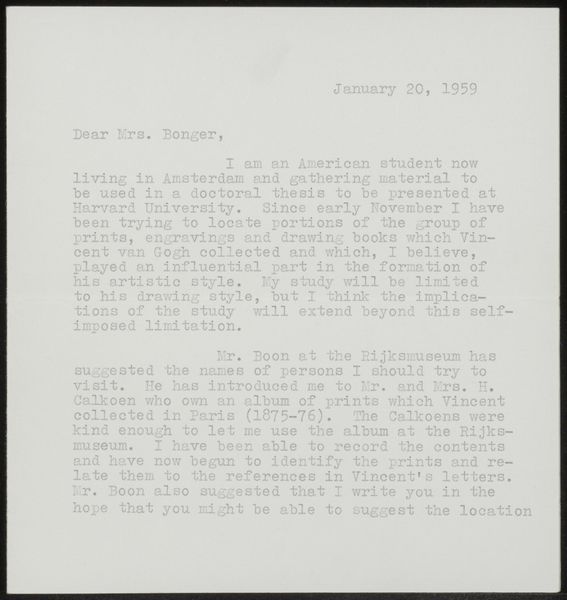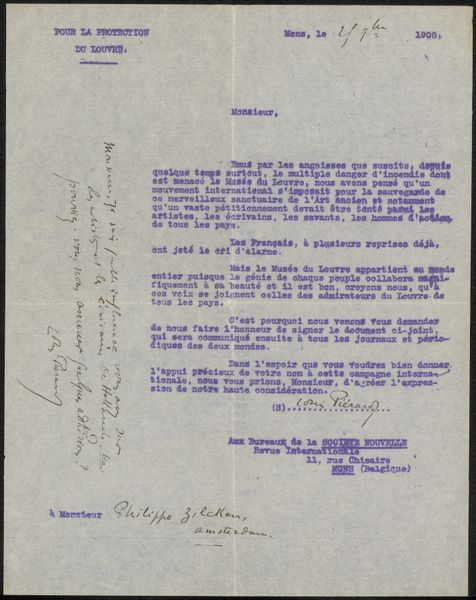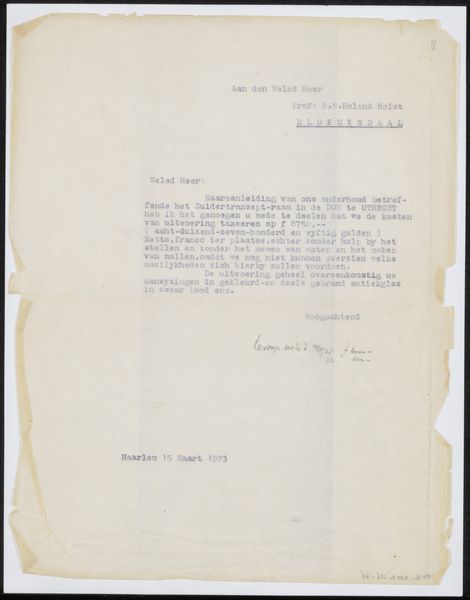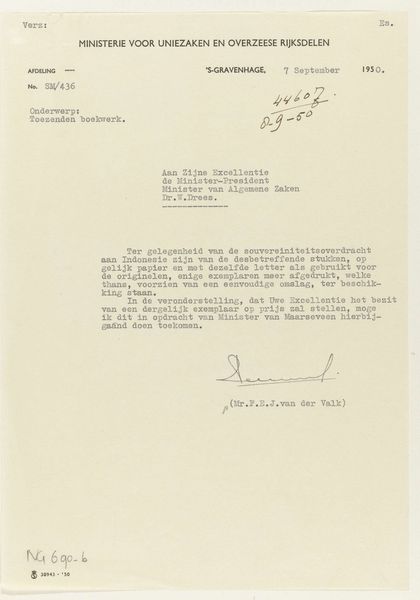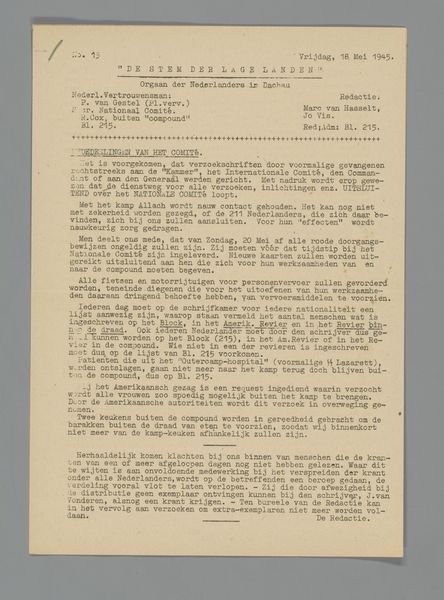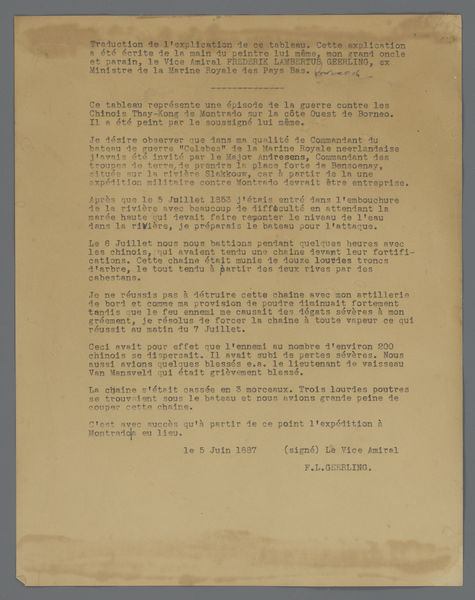
collage, textile, paper
#
portrait
#
script typeface
#
type repetition
#
sand serif
#
aged paper
#
collage
#
script typography
#
typeface
#
hand drawn type
#
textile
#
paper
#
hand-drawn typeface
#
thick font
#
handwritten font
#
calligraphy
Copyright: Rijks Museum: Open Domain
Editor: Here we have "Brief aan Françoise W.M. Bonger," possibly from 1972-1976, attributed to Stephen Cross. It seems to be a collage, perhaps incorporating paper and textile elements. The aged quality of the paper gives it an immediate sense of history. What is your perspective on this piece? Curator: This artwork, presented as a letter, offers an intriguing insight into the art world's social and institutional networks. Cross writes to Bonger, likely a significant collector or patron, to request permission to film works by Odilon Redon for a documentary. What does the letter reveal about the public role of art at the time? Editor: It sounds like gaining access was dependent on these personal connections and permissions. Did the location of the art at the Rijksmuseum, and Bonger's social standing, influence his approach? Curator: Precisely. Notice how the letter emphasizes the documentary's serious, academic nature destined for institutions and the BBC. Cross is mindful of institutional and societal validation to get permission. The formal language and deference further highlight the hierarchical structures within the art world. The politics of imagery often hinge on such negotiations. What is your takeaway? Editor: I never considered that gaining permission was an important political component within documentary filmmaking! It is not always enough to have talent and passion. Curator: Right, understanding the broader institutional landscape is crucial to analyzing visual culture and public access to the art that can get showcased!
Comments
No comments
Be the first to comment and join the conversation on the ultimate creative platform.
